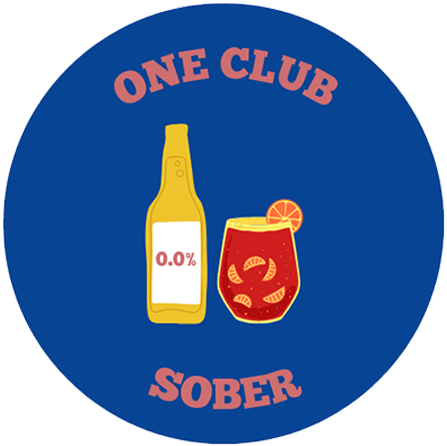If you enjoy an occasional glass of non-alcoholic wine but are concerned about sugar intake, you might be curious about the sugar content in non-alcoholic wines.
Yes, sugar can be found in all wines, whether alcoholic or not. As wine is a byproduct of fermented grapes, there will always be traces of naturally occurring sugar from the grapes.
In some cases, winemakers may add sugar to the wine for taste enhancement after removing the alcohol. This practice is more common in wines from the US, reflecting market interest in sweeter tasting wines.
Below, I’ve put together a guide to help you better understand the sugar content in non-alcoholic wine.
Also Read: Can Diabetics Drink Non-Alcoholic Wine?

Why Non-Alcoholic Wines Have Sugar
Most of the sugar found in non-alcoholic wine is not actually added by winemakers.
Instead, the sugar found in wine is a natural byproduct that comes from fermenting grapes, and it is known as residual sugar.
Since wine is made from grapes, it naturally contains sugar. There are two types of natural sugars found in non-alcoholic wine – fructose and glucose, which are found in wine grapes.
During traditional wine fermentation, added yeast is used to convert all the sugar into alcohol, or ethanol. However, not all the sugar is usually fermented by the yeast, leaving behind some of the sweetness.
However, with non-alcoholic wines, the fermentation process is halted before it can convert all the sugars into alcohol, resulting in a higher concentration of residual sugar.

How Much Sugar Is In A Non-Alcoholic Wine?
Here is a breakdown of the sugar level found in different types of wine:
| Type of Wine | Avg Sugar Per 100ml |
|---|---|
| Bone Dry (Sauvignon Blanc, Champagne) | 0 kcal, < 1g/L Residual Sugar |
| Dry (Pinot noir, Chardonnay, Cabernet Sauvignon) | 0-6 kcal, 1-10g/L Residual Sugar |
| Off-Dry (Gewürztraminer, White Zinfandel, Chenin Blanc) | 6-24 kcal, 6-21g/L Residual Sugar |
| Sweet (Sweet Rosé including Moscato & sweet Riesling) | 21-72 kcal, 35-120g/L Residual Sugar |
| Very Sweet (including Tawny Port, Ice Wine) | 72-130 kcal, 120-220g/L Residual Sugar |
On average, a glass of 100ml of non-alcoholic wine will have around 2g to 10g of sugar, depending on the type of non-alcoholic wine.
Here’s a list of some of the bestselling non-alcoholic wines and their sugar levels (links to individual wines below):
| Brand | Avg Sugar Per 100ml | Where To Buy |
|---|---|---|
| Giesen 0% New Zealand Sauvignon Blanc | 1.8g | $16.99 (Check latest price on Proof No More) |
| Giesen 0% New Zealand Rosé | 2g | $16.99 (Check latest price on Proof No More) |
| Lautus Dealcoholized Red Wine | 2g | $22.99 (Check latest price on Proof No More) |
| Thomson & Scott Noughty Non-Alcoholic Rouge – Red Syrah | 2g | $21.99 (Check latest price on Proof No More) Available in the UK via ZeroZilchZip |
| Surely Wines Sauvignon Blanc | 3g | $24.99 (Check latest price on Surely) |
| Carl Jung Rosé – Read our full review here | 3.5g | £7.53 (Check latest price on Dry Drinker) |
| Vinada Tinteling Tempranillo Rosé | 5g | $15.99 (Check latest price on Proof No More) |
There are several factors behind how much sugar is in a non-alcoholic wine, and the sugar level varies very differently between different types of wine:
Some grapes are sweeter than others
The type of grapes used and when they were harvested determines the sugar content and how sweet the wine is.
Grapes that are kept longer on the vines before harvesting are sweeter and will produce sweeter wines with higher sugar content.
It depends on the type of wine
The rule of thumb to follow is the drier the wine, the lower in sugar.
This is true for both non-alcoholic wines and alcoholic wines. For example, your glass of Sauvignon Blanc will have less sugar than a glass of Moscato.
The term “dry wine” just simply means it has little to no residual sugar. Sometimes it is also referred to the mouthfeel, but that’s usually down to the wine’s tannins that is causing that “dry” sensation on your tongue.
Also Read: The 5 Best Non-Alcoholic Wine For Diabetics (By Categories)

Does Non-Alcoholic Wine Have More Sugar As Compared To Alcoholic Wine?
Yes, non-alcoholic wine usually has more sugar as compared to alcoholic wine. This is because during the process of making alcoholic wine, most of the sugar is fermented into alcohol.
An average alcoholic red wine has around 1g of sugar per 100ml, while a non-alcoholic red wine has around 2g of sugar per 100ml.
Conclusion
Non-alcoholic wine do contain sugar, but they are naturally occurring sugar from fermented grapes. Choosing the right non-alcoholic wine for you is possible because not all non-alcoholic wines are high in sugar.
When I am watching my sugar intake, I always choose dry non-alcoholic wine over sweeter dessert wines to reduce my sugar intake.
Interested in learning more about non-alcoholic drinks for diabetics? Check out our other resources below:
